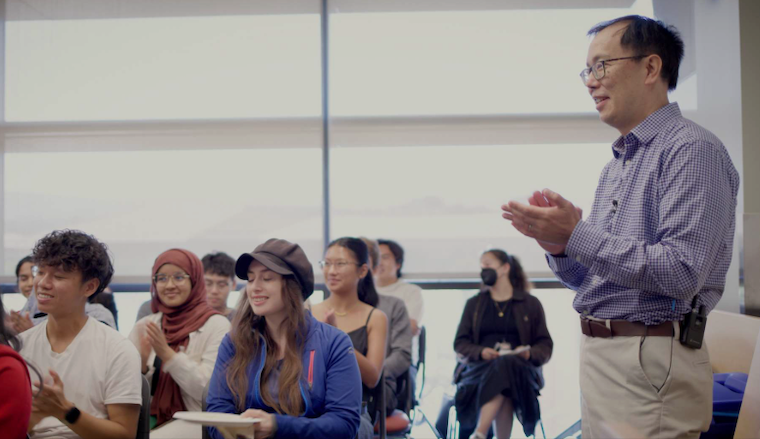©2025 Hello I’m Dead, Inc. All rights reserved.
Contact support@helloimdead.com


Recently, I was deeply moved by the story of Stanford professor Dr. Bryant Lin, an oncologist who was diagnosed with lung cancer despite never smoking. What made his story remarkable wasn't just his diagnosis—it was his courageous decision to share his journey through "MED 275: From Diagnosis to Dialogue: A Doctor's Real-Time Battle with Cancer," a course he continues to teach at Stanford.
Dr. Lin's choice represents the essence of a living legacy: creating meaningful impact while we're still here to guide and shape it. His story prompted me to reflect on my own legacy and what I want to leave for my four children and loved ones.

What would you want your legacy to be?
This reflection can be both sobering and cathartic, but it's one of the most important conversations we can have with ourselves and our families.
1. Create a Charitable Legacy That Reflects Your Values

Donor-Advised Funds (DAFs): Your Personal Philanthropy Account
A donor-advised fund is essentially a giving account established at a public charity. Here's how it works:
Qualified Charitable Distributions (QCDs): Smart Giving for Retirees
If you're seventy and a half or older, QCDs allow you to:
For detailed guidance on retirement charitable giving strategies, talk to your retirement advisor.
"I will give away virtually all my wealth through the Gates Foundation over the next 20 years to the cause of saving and improving lives around the world." — Bill Gates
Memorial Giving: Turning Grief into Action
When grieving a loved one, consider:
2. Document Your Legacy: Essential Questions for Meaningful Conversations

The death positivity movement, which you may have heard of, encourages open discussions about death, paradoxically helping us live better lives by removing stigma and strengthening relationships.
These conversations can take the form of legacy wishes or farewell letters that capture your values and wisdom for future generations.
Getting Started: Essential Legacy Questions
Core Values & Life Principles
Roles and Identity
Faith and Spiritual Beliefs
Family Stories and Generational Wisdom
Emotional Moments & Reflection
Giving and Generosity
Final Message & What Matters Most
3. Plan Your End-of-Life Care with Intention

The Documentation Gap
According to research from The Conversation Project, while 92%of people agree that discussing end-of-life care is important, only 32% actually have these conversations. Similarly, 97% believe it's important to put wishes in writing, but only 37% have written documentation.
Why does this matter?
Having agency over both our lives and our end-of-life care allows us to:
Creating a meaningful legacy isn't just about what happens after we're gone—it's about living with intention right now. Whether through charitable giving, documenting your story, or planning for the future, you have the power to shape how you'll be remembered.
Ready to begin your legacy planning?
Visit Hello, I'm Dead to start documenting your final wishes and creating a meaningful tribute. Whether it’s for you or for a loved one, beginning today will make tomorrow a joyful,impactful, and beautiful celebration of life.
For additional support, explore our resources or read about legendary legacies for inspiration.
Your legacy is waiting to be written. What story will you tell?
Join our community and never miss out on exciting opportunities. Sign up today to unlock a world of valuable content delivered right to your inbox.
Different POVs on embracing death and celebrating life.